19、配置嵌入式servlet容器(下)
使用外置的Servlet
嵌入式Servlet容器:应用打成可执行的j ar
优点:简单、便携;
缺点:默认不支持JSP、优化定制比较复杂
使用定制器【ServerProperties、自定义
EmbeddedServletContainerCustomizer】,
自己编写嵌入式Servlet容器的创建工厂
EmbeddedServletContainerFactory】
外置的Servlet容器:外面安装Tomcat---应用war包的方式打包
创建工程的时候使用war包
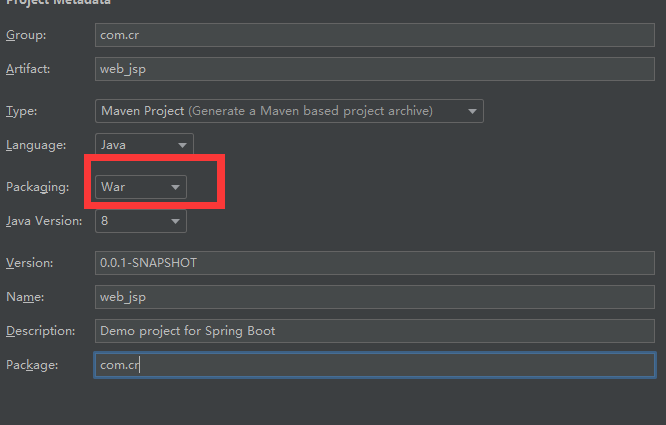
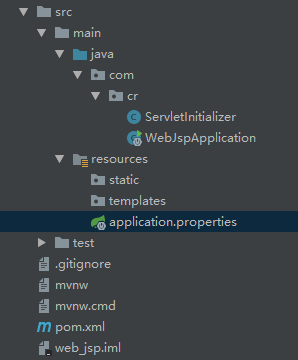

添加xml配置文件

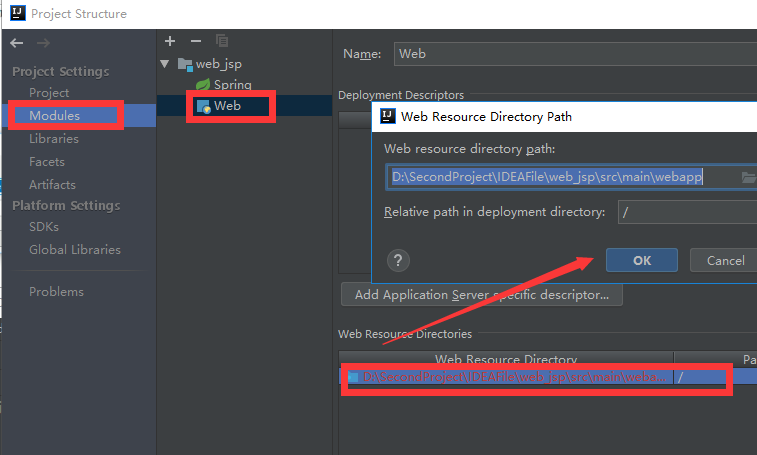

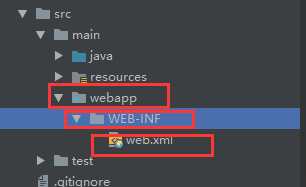
添加外部的服务器:

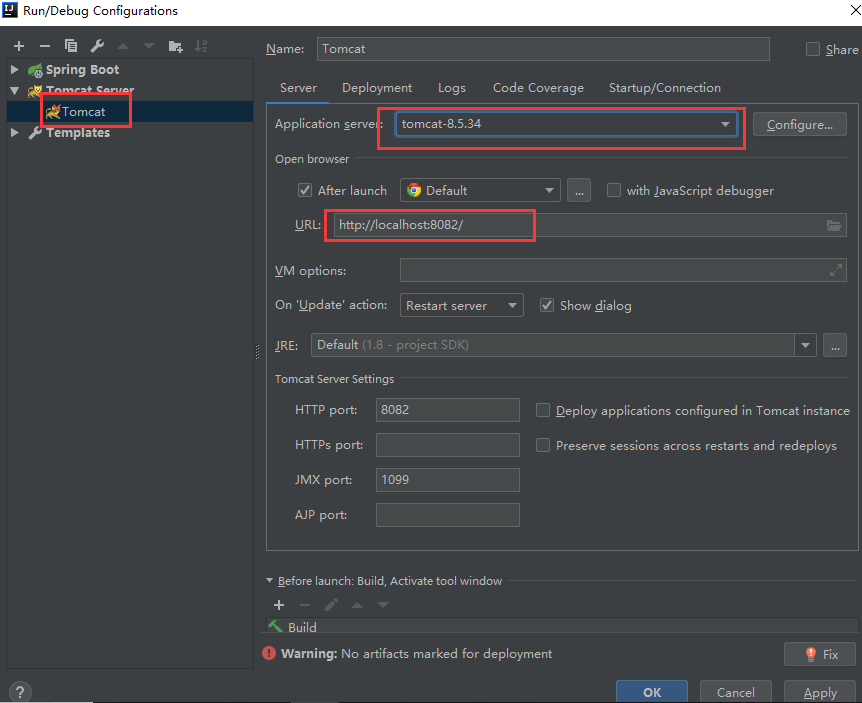





完成hello.jsp页面的跳转

hello.jsp
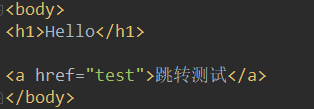
test.jsp



test.java

测试:

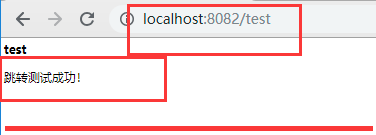
总结:
1)、必须创建一个war项目;(利用idea创建好目录结构)
2)、将嵌入式的Tomcat指定为provided
<dependency>
<groupId>org.springframework.boot</groupId>
<artifactId>spring-boot-starter-tomcat</artifactId>
<scope>provided</scope>
</dependency>
3)、必须编写一个SpringBootServletInitializer的子类,并调用configure方法
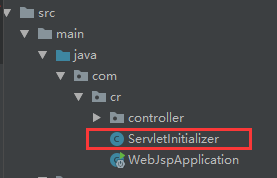


4)、启动服务器就可以使用
原理:
jar包:执行SpringBoot主类的main方法,启动ioc容器,创建嵌入式的Servlet容器
war包:启动服务器,服务器启动SpringBoot应用【SpringBootServletInitializer】,启动ioc容器
servlet3.0(Spring注解版)
章节:8.2.4 Shared libraries / runtimes pluggability
规则:
1)、服务器启动(web应用启动)会创建当前web应用里面每一个jar包里面ServletContainerInitializer实例:
2)、ServletContainerInitializer的实现放在jar包的META-INF/services文件夹下,有一个名为
javax.servlet.ServletContainerInitializer的全类名
3)、还可以使用@HandlesTypes,在应用启动的时候加载我们感兴趣
流程:
1)、启动Tomcat
2)、org\springframework\spring-web\4.3.14.RELEASE\spring-web- 5.1.3.RELEASE.jar!\METAINF\services\javax.servlet.ServletContainerInitializer:
Spring的web模块里面有这个文件:


3)、SpringServletContainerInitializer将@HandlesTypes(WebApplicationInitializer.class)标注的所
有这个类型的类都传入到onStartup方法的Set>;为这些WebApplicationInitializer类型的类创建实例;
@HandlesTypes({WebApplicationInitializer.class})
public class SpringServletContainerInitializer implements ServletContainerInitializer {
public SpringServletContainerInitializer() {
}
public void onStartup(@Nullable Set<Class<?>> webAppInitializerClasses, ServletContext servletContext) throws ServletException {
List<WebApplicationInitializer> initializers = new LinkedList();
Iterator var4;
if (webAppInitializerClasses != null) {
var4 = webAppInitializerClasses.iterator();
while(var4.hasNext()) {
Class<?> waiClass = (Class)var4.next();
if (!waiClass.isInterface() && !Modifier.isAbstract(waiClass.getModifiers()) && WebApplicationInitializer.class.isAssignableFrom(waiClass)) {
try {
initializers.add((WebApplicationInitializer)ReflectionUtils.accessibleConstructor(waiClass, new Class[0]).newInstance());
} catch (Throwable var7) {
throw new ServletException("Failed to instantiate WebApplicationInitializer class", var7);
}
}
}
}
if (initializers.isEmpty()) {
servletContext.log("No Spring WebApplicationInitializer types detected on classpath");
} else {
servletContext.log(initializers.size() + " Spring WebApplicationInitializers detected on classpath");
AnnotationAwareOrderComparator.sort(initializers);
var4 = initializers.iterator();
while(var4.hasNext()) {
WebApplicationInitializer initializer = (WebApplicationInitializer)var4.next();
initializer.onStartup(servletContext);
}}}}
4)、每一个WebApplicationInitializer都调用自己的onStartup;
WebApplicationInitializer的实现

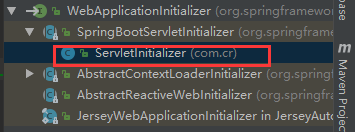
是我们自己的Servletinitializer类
5)、相当于我们的SpringBootServletInitializer的类会被创建对象,并执行onStartup方法
6)、SpringBootServletInitializer实例执行onStartup的时候会createRootApplicationContext;创建容器
public class ServletInitializer extends SpringBootServletInitializer { @Override protected SpringApplicationBuilder configure(SpringApplicationBuilder application) { return application.sources(WebJspApplication.class); } }
SpringBootServletInitializer.java
public void onStartup(ServletContext servletContext) throws ServletException { this.logger = LogFactory.getLog(this.getClass()); WebApplicationContext rootAppContext = this.createRootApplicationContext(servletContext); if (rootAppContext != null) { servletContext.addListener(new ContextLoaderListener(rootAppContext) { public void contextInitialized(ServletContextEvent event) { } }); } else { this.logger.debug("No ContextLoaderListener registered, as createRootApplicationContext() did not return an application context"); } } .....
protected WebApplicationContext createRootApplicationContext( ServletContext servletContext) { //1、创建SpringApplicationBuilder SpringApplicationBuilder builder = createSpringApplicationBuilder(); StandardServletEnvironment environment = new StandardServletEnvironment(); environment.initPropertySources(servletContext, null); builder.environment(environment); builder.main(getClass()); ApplicationContext parent = getExistingRootWebApplicationContext(servletContext); if (parent != null) { this.logger.info("Root context already created (using as parent)."); servletContext.setAttribute( WebApplicationContext.ROOT_WEB_APPLICATION_CONTEXT_ATTRIBUTE, null); builder.initializers(new ParentContextApplicationContextInitializer(parent)); } builder.initializers( new ServletContextApplicationContextInitializer(servletContext)); builder.contextClass(AnnotationConfigEmbeddedWebApplicationContext.class); //调用configure方法,子类重写了这个方法,将SpringBoot的主程序类传入了进来 builder = configure(builder); //使用builder创建一个Spring应用 SpringApplication application = builder.build(); if (application.getSources().isEmpty() && AnnotationUtils .findAnnotation(getClass(), Configuration.class) != null) { application.getSources().add(getClass()); } Assert.state(!application.getSources().isEmpty(), "No SpringApplication sources have been defined. Either override the " + "configure method or add an @Configuration annotation"); // Ensure error pages are registered if (this.registerErrorPageFilter) { application.getSources().add(ErrorPageFilterConfiguration.class); } //启动Spring应用 return run(application); }
7)、Spring的应用就启动并且创建IOC容器

public ConfigurableApplicationContext run(String... args) { StopWatch stopWatch = new StopWatch(); stopWatch.start(); ConfigurableApplicationContext context = null; Collection<SpringBootExceptionReporter> exceptionReporters = new ArrayList(); this.configureHeadlessProperty(); SpringApplicationRunListeners listeners = this.getRunListeners(args); listeners.starting(); Collection exceptionReporters; try { ApplicationArguments applicationArguments = new DefaultApplicationArguments(args); ConfigurableEnvironment environment = this.prepareEnvironment(listeners, applicationArguments); this.configureIgnoreBeanInfo(environment); Banner printedBanner = this.printBanner(environment); context = this.createApplicationContext(); exceptionReporters = this.getSpringFactoriesInstances(SpringBootExceptionReporter.class, new Class[]{ConfigurableApplicationContext.class}, context); this.prepareContext(context, environment, listeners, applicationArguments, printedBanner); //刷新容器的初始化 this.refreshContext(context); this.afterRefresh(context, applicationArguments); stopWatch.stop(); if (this.logStartupInfo) { (new StartupInfoLogger(this.mainApplicationClass)).logStarted(this.getApplicationLog(), stopWatch); } listeners.started(context); this.callRunners(context, applicationArguments); } catch (Throwable var10) { this.handleRunFailure(context, var10, exceptionReporters, listeners); throw new IllegalStateException(var10); } try { listeners.running(context); return context; } catch (Throwable var9) { this.handleRunFailure(context, var9, exceptionReporters, (SpringApplicationRunListeners)null); throw new IllegalStateException(var9); } }



 浙公网安备 33010602011771号
浙公网安备 33010602011771号